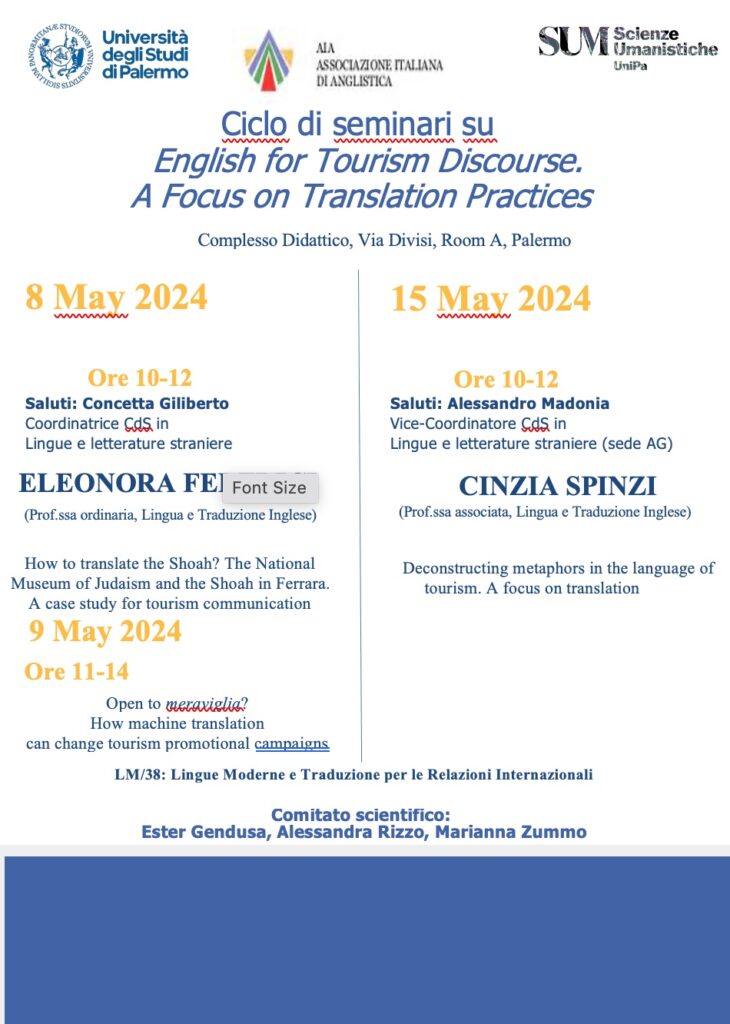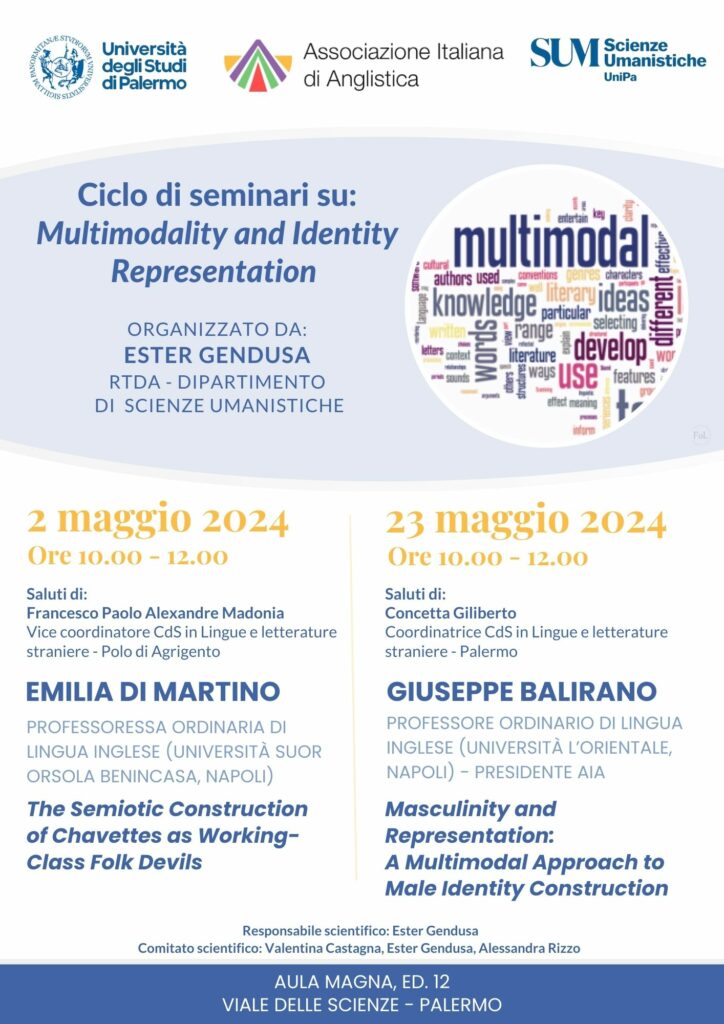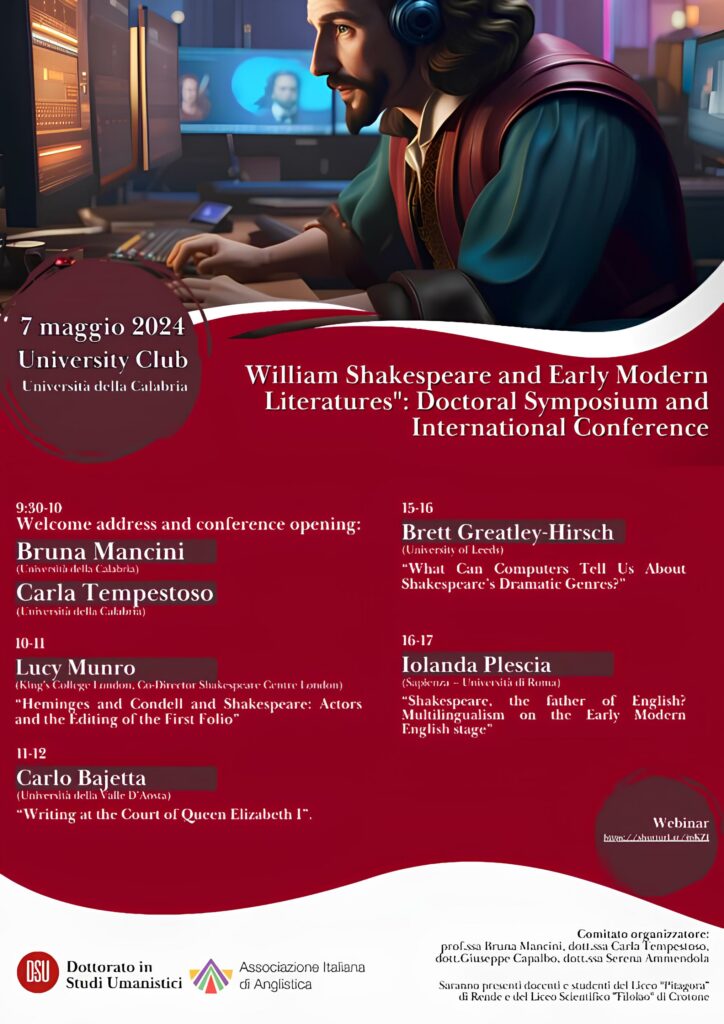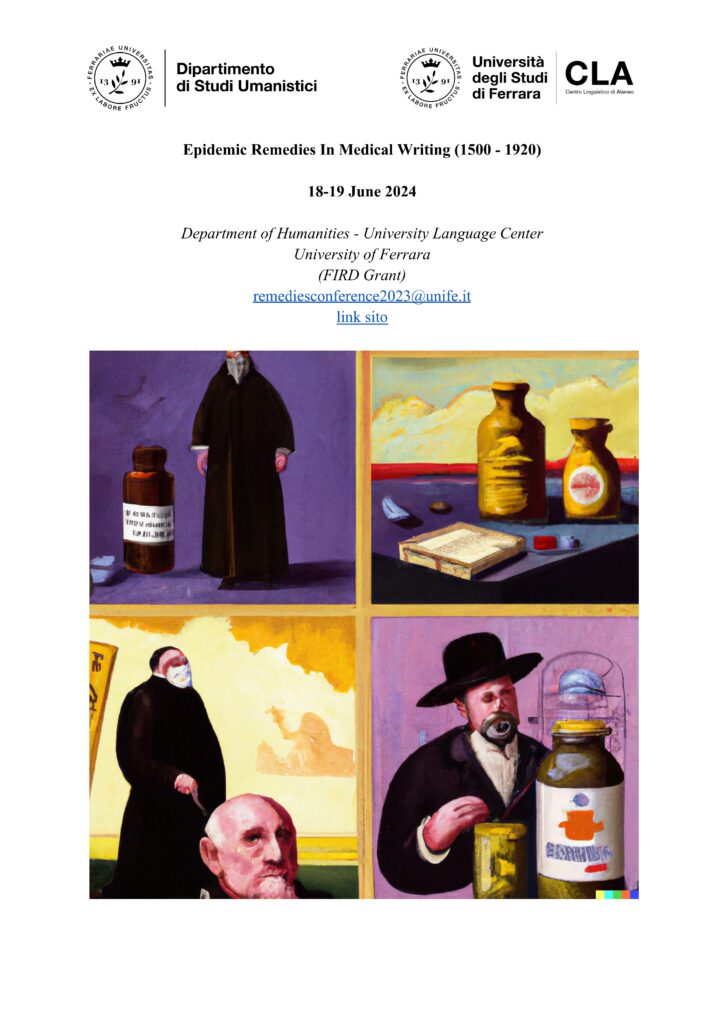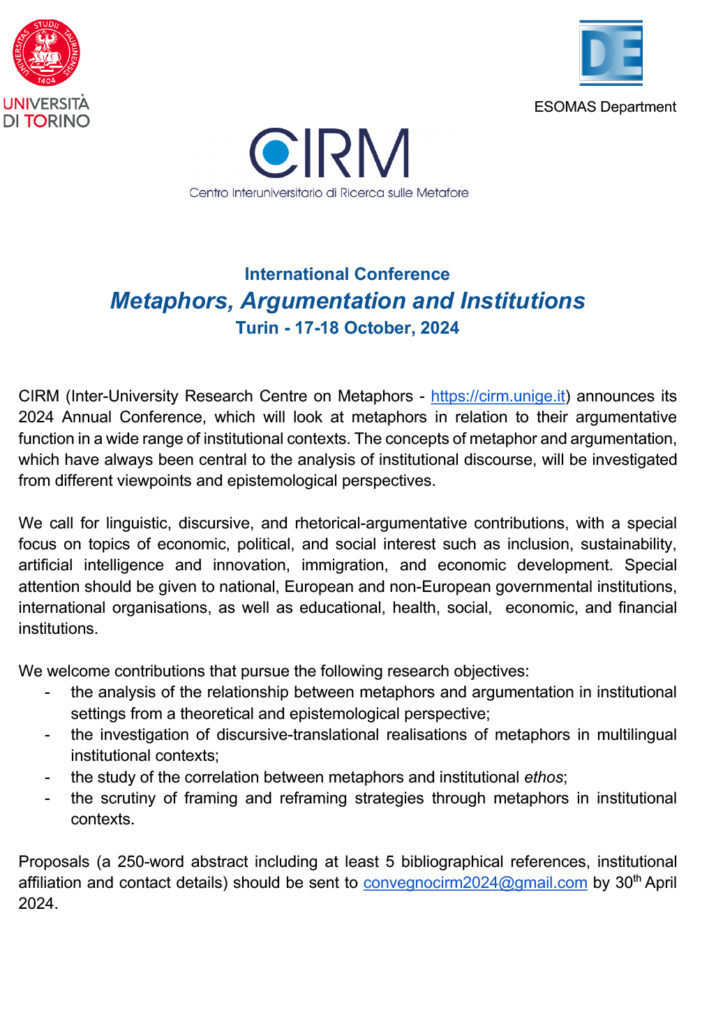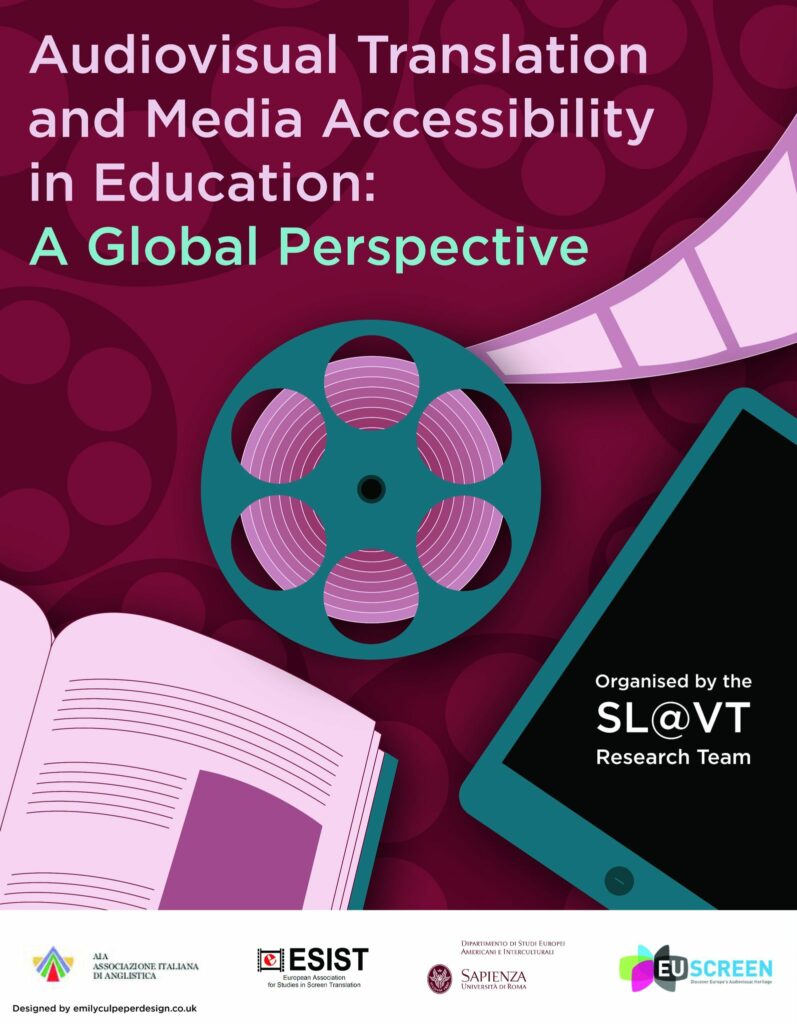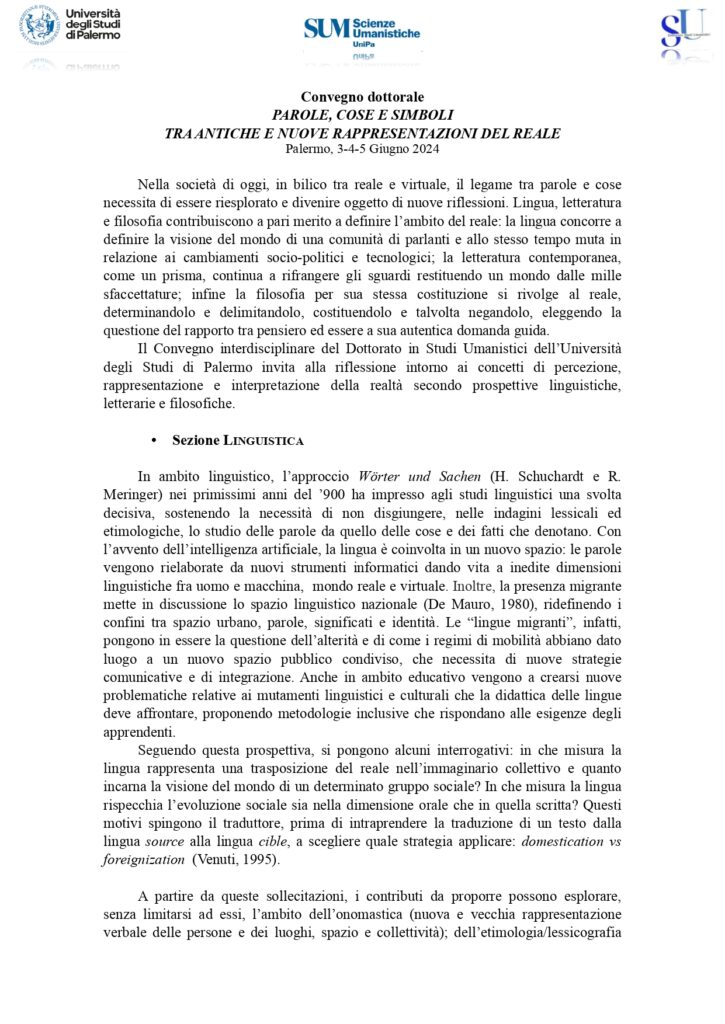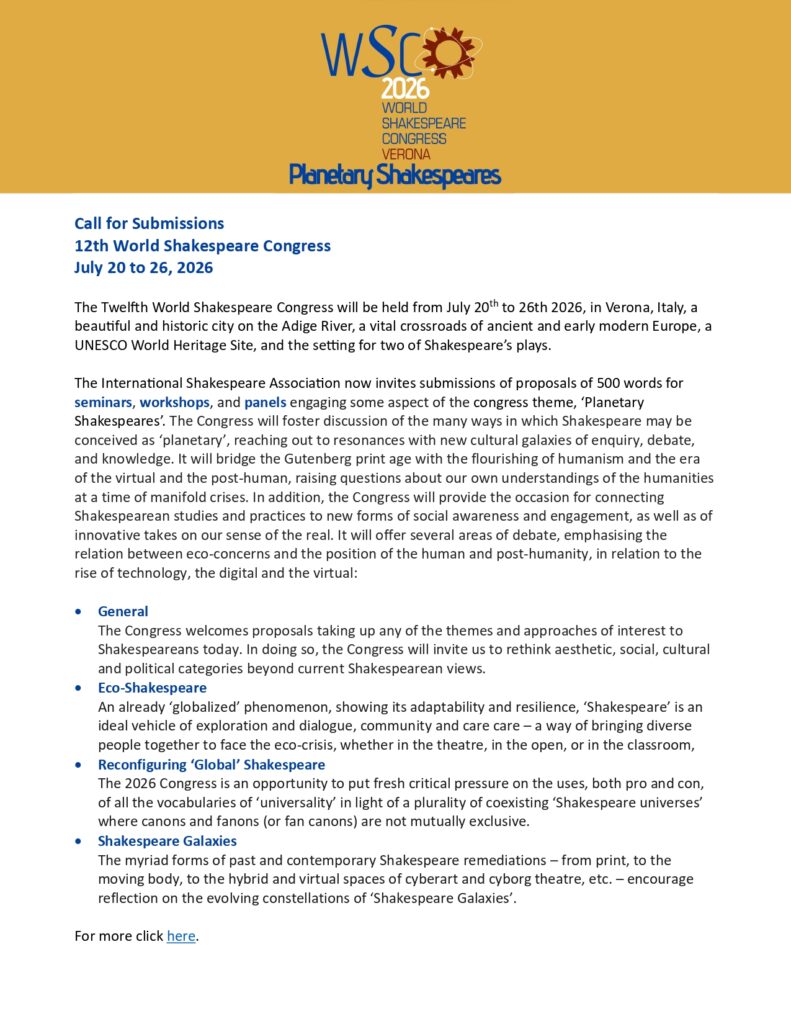CALL FOR PAPERS Audiovisual Translation and Media Accessibility in Education: A Global Perspective5–6 December 2024, Sapienza University of Rome, ItalyOrganised by the SL@VT Research Team https://web.uniroma1.it/seai/it/node/4522 Over the last couple of decades, the application of Audiovisual Translation (AVT) modes (e.g. dubbing, subtitling, voiceover) and Media Accessibility (MA) practices (e.g. SDH, audio description) in foreign language teaching and learning has gained momentum (Sokoli 2006; Díaz-Cintas and Cruz, 2008; Incalcaterra, 2009; Chiu 2012; Zabalbeascoa et al. 2012; Bolaños-García-Escribano and Navarrete, 2018; Navarrete, 2018; Lertola, 2019; Talaván and Rodríguez-Arancón, 2019; Herrero et al. 2020 to name but a few). Scholarly research has concentrated on developing methodologies and technological tools within didactic AVT and MA (recently referred to as DAT, see Talaván et al., 2024) to be used in higher education settings as well as other areas such as language for specific purposes and primary education, among others. Among the projects that pioneered this approach were Learning Via Subtitling (LeViS) (20062008), Babelium (2013–2015), SubLanLearn (2009–2012), ClipFlair (20112014), and PluriTAV (2016–2019). Research outputs stemming from these projects have previously provided empirical evidence for language improvement while adopting AVT and MA practices within different learning contexts, often with a focus on foreign language education.More recent research projects such as TRADILEX (2019–2023) and SL@VT (Audiovisual Tools and Methodologies to Enhance Second Language Acquisition and Learning, 2022–) have sought to provide further understanding of the challenges and benefits in the teaching of both languages and translation. In particular, SL@VT has been designed to extend the directionality and breadth of language learning, by including for instance Greek, Polish and Korean, aside from frequently taught languages such as English, Italian, German and Spanish. We are also particularly interested in how AVT and MA practices can be effectively integrated into other disciplines, such as film studies, as well as their potential to raise awareness about societal issues such as disability, intersectionality and inclusion, among others.In light of the above, this conference aims to gather proposals that can offer further insights into the use of AVT and MA not only in language learning but other areas of education, thus helping scholarly research to reach a more global perspective in this theory and practice. As much of the AVT research available has traditionally focused on European languages, we are also interested to hear from those making use of multimodal and AVT tools to teach languages such as Arabic, Chinese, Hindi, Japanese and so forth. Furthermore, we are interested in what methodologies are being created to enhance both language learning and translation training as a professional practice. Contributions that examine DAT and MA methodologies from a comprehensive perspective, highlighting the possible challenges, benefits and drawbacks, are particularly welcome. Audiovisual Translation and Media Accessibility in Education: A Global Perspective is organised by the SL@VT Research Team and will take place at Sapienza University of Rome (Italy), on Thursday 5th and Friday 6th December 2024. The Scientific Committee would like to consider 20-minute paper proposals engaging with education and the following key topics: – Captioning (interlingual and intralingual subtitling)– Revoicing (dubbing, voice-over, free commentary)– Media accessibility (including audio description and subtitling for the deaf and hard-of-hearing audiences)– Other AVT-MA practices (including respeaking, surtitling, easy-to-read language)– Non-professional practices (fansubbing, fundubbing and fandubbing)– Technologies in language learning (digital platforms, applications) with a focus on AVT-MA– AVT-MA and language education in formal and non-formal contexts (e.g. curriculum design, assessment)– Curriculum design and assessment in language and translation education settings with a focus on AVT-MA– Audiovisual language and film studies education– AVT-MA as a cultural mediation tool in language teaching and learning– AVT-MA and teacher training Proposals will be subject to a double-blind peer-review process. Following the conference, the Scientific Committee will shortlist a number of papers to be included in an edited book published by an international publisher via Open Access. Working language: English ReferencesBolaños-García-Escribano, A., & Navarrete, M. (2018). An action-oriented approach to didactic dubbing in foreign language education: Students as producers. XLinguae, 15(2), 103-120. DOI: 10.18355/XL.2022.15.02.08.Chiu, Y. (2012). Can film dubbing projects facilitate EFL learners’ acquisition of English pronunciation? British Journal of Educational Technology, 43(1), E24-E27. https://doi. org/10.1111/j.1467-8535.2011.01252.Díaz-Cintas, J., & Cruz, F. (2008). Using subtitled video materials for foreign language instruction. In J. Díaz-Cintas (Ed.), The Didactics of Audiovisual Translation. John Benjamins. DOI:10.1075/btl.77.20.Herrero, C., Valverde, K., Costal, T., & Sánchez-Requena, A. (2020). The “Film and Creative Engagement Project”: Audiovisual accessibility and telecollaboration. Research in Education and Learning Innovation Archives, 24, 89-104. DOI: 10.7203/realia.24.16744.Incalcaterra McLoughlin, L. (2009). Inter-semiotic translation in foreign language acquisition: the case of subtitles. In A. Witte, T. Harden & A. Ramos de Oliveira Harden (Eds.), Translation in second language learning and teaching (pp. 227-244). Peter Lang.Lertola, J. (2019). Audiovisual translation in the foreign language classroom: applications in the teaching of English and other foreign languages. Voillans: Research-Publishing.net.https://files.eric.ed.gov/fulltext/ED593736.pdf.Navarrete, M. (2018). The Use of audio description in foreign language education: A preliminary approach. Translation and Translanguaging in Multilingual Context, 4(1), 129-150. https://doi.org/10.1075/ttmc.00007.nav.Sokoli, S. (2006) “Learning via Subtitling (LvS): A tool for the creation of foreign language learning activities based on film subtitling” in Carroll M. and H. Arbogast (eds) Audiovisual Translation Scenarios: Proceedings of the Marie Curie Euroconferences.Talaván, N., & Rodríguez-Arancón, P. (2019). Voice-over to improve oral production skills: the VICTOR project. In J. D. Sanderson & C. Botella-Tejera (Eds.), Focusing on Audiovisual Translation Research (pp. 211-236). PUV Universitat de Valencia.Talaván, N., Lertola, J., Fernández-Costales, A. (2024). Didactic Audiovisual Translation and Foreign Language Education. London and New York: Routledge.Zabalbeascoa, P., Sokoli, S., & Torres, O. (2012). Conceptual framework and pedagogical methodology. Lifelong learning programme. http://clip#http://air.net/…/2014/06/D2.1ConceptualFramework.pdf. Deadlines and fees 01 June 2024 – Deadline for abstracts (300 words) and biosketch (100 words)01 July 2024 – Notification of acceptance5-6 December 2024 – Conference, Sapienza University of Rome, Italy Early bird registration (by 31 July 2024)€100€50 PhD studentsPlease fill this Form (active soon) Regular registration (by 15 September 2024)€150€75 PhD studentsPlease fill this Form (active soon) BA, MA students: free entry but the must email the organisers for reservation by 15 October 2024. ESIST members will enjoy the early


